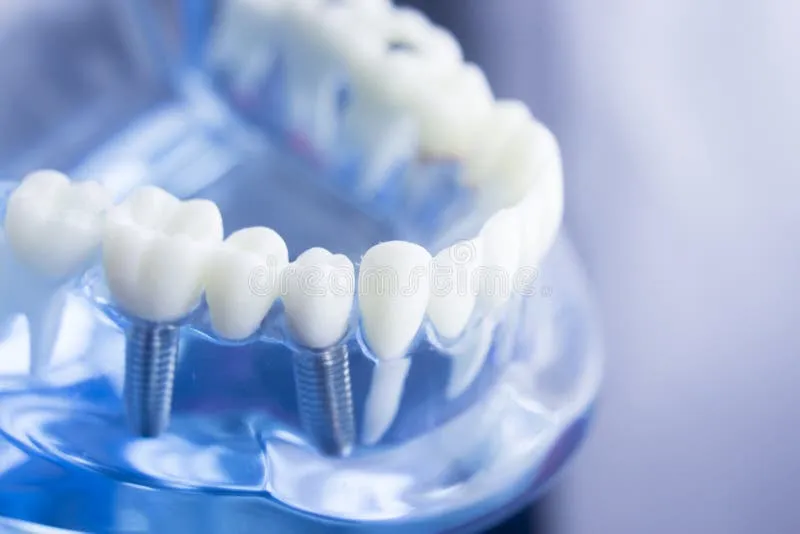Dental Implants Howard Beach, Queens NY
Dental implants are a popular and effective solution for individuals who have lost one or more teeth due to damage or decay.
They are a permanent replacement option that offers many advantages over traditional dentures or bridges, including improved appearance, better function, and enhanced oral health.
In this article, we will discuss everything you need to know about dental implants, including the benefits, the process, and the potential risks and complications.
What are Dental Implants?
Dental implants are surgically placed into the jawbone to provide a stable base for the replacement tooth. They are typically made of titanium or other biocompatible materials that are able to fuse with the surrounding bone tissue, providing a strong and durable foundation for the replacement tooth.
Dental implants are a popular option for individuals who have lost one or more teeth, as they offer many advantages over traditional dentures or bridges. Some of the benefits of dental implants include

Improved Appearance – Dental implants are designed to look and feel like natural teeth, which can enhance your appearance and self-confidence. They are custom-made to match the color, shape, and size of your natural teeth, ensuring a seamless and natural-looking smile.
Better Function – Dental implants are a more functional replacement option than traditional dentures or bridges. They provide a stable base for the replacement tooth, which allows you to eat and speak more comfortably and effectively.
Enhanced Oral Health – Dental implants can help to preserve the health of your natural teeth and gums. Unlike traditional bridges, which require the support of adjacent teeth, dental implants do not require any additional support and do not put pressure on surrounding teeth, which can help to preserve their integrity
The Dental Implant Procedure:
Consultation – The first step in the dental implant process is a consultation with a qualified dental professional. During this appointment, the dentist or oral surgeon will evaluate your oral health, take x-rays, and discuss your treatment options.
Implant Placement – Once you have been approved for dental implant treatment, the next step is the placement of the implant. This involves the surgical placement of the implant into the jawbone. The implant is left to heal for several months, allowing the surrounding bone tissue to fuse with the implant.
Abutment Placement – After the implant has healed, an abutment is placed on top of the implant. This serves as a connector between the implant and the replacement tooth or bridge.
Crown or Bridge Placement – The final step in the dental implant process is the placement of the replacement tooth or bridge. This is typically done using a crown or bridge that is custom-made to match the color, shape, and size of your natural teeth.
Risks and Complications
As with any surgical procedure, there are potential risks and complications associated with dental implants.
Some of the most common risks and complications include:
Infection – The risk of infection is present with any surgical procedure. If an infection occurs, it can cause pain, swelling, and other complications.
Nerve Damage – There is a risk that nerve damage may occur during the implant procedure. You will know this occurred if you feel numbness, tingling, or other sensations in the mouth after healing from the procedure.
Implant Failure – In some cases, the implant may fail to fuse with the surrounding bone tissue, leading to implant failure.
Bone Loss – In rare cases, dental implants may cause bone loss in the surrounding jawbone, which can weaken the surrounding teeth and gums.
To minimize the risk of complications, it is important to choose a qualified dental professional who has experience with dental implant placement.
Additionally, it is important to follow all post-operative instructions carefully and attend all follow-up appointments to ensure proper healing and recovery.
In conclusion, dental implants are a highly effective tooth replacement option that can provide many benefits to patients who have lost one or more teeth. In addition, the cost of dental implants can vary depending on several factors, but they offer several benefits that can make them a worthwhile investment.
Patients should consider the potential cost savings of dental implants over time, as well as financing options that may be available to make treatment more affordable. Consultation with your dentist is necessary to discuss the cost and payment options for dental implant treatment. If you are considering dental implants, it is important to consult with a qualified dental professional to determine if they are a suitable option for you.
We are here for all your dentistry needs
For any questions or to schedule an appointment, fill out the form or give us a call today!
For an appointment call:
718-843-9209
© 2023 DentistinHowardBeach.com. All Rights Reserved
